Humans
Sign up for our newsletter
We summarize the week's scientific breakthroughs every Thursday.
-
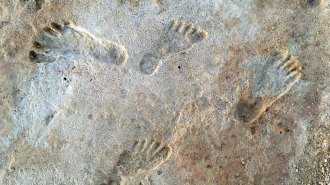 Archaeology
ArchaeologyHuman footprints in New Mexico really may be surprisingly ancient, new dating shows
Two dating methods find that human tracks in White Sands National Park in New Mexico are roughly 22,000 years old, aligning with a previous estimate.
-
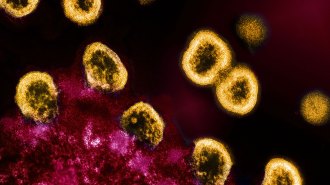 Health & Medicine
Health & Medicine‘Dormant’ HIV has ongoing skirmishes with the body’s immune system
In people on HIV drugs, defective viral bits may still exhaust T cells, possibly making it harder to fight back if people go off the drugs.
By John Carey -
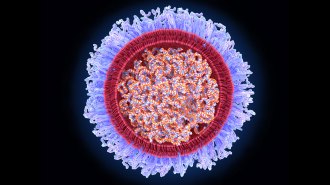 Health & Medicine
Health & MedicineEarly mRNA research that led to COVID-19 vaccines wins 2023 medicine Nobel Prize
Biochemists Katalin Karikó and Drew Weissman devised mRNA modifications to make vaccines that trigger good immune responses instead of harmful ones.
-
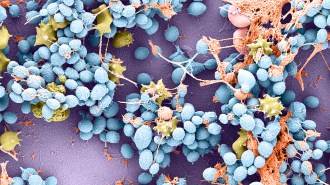 Health & Medicine
Health & MedicineHow a deadly fungus is so good at sticking to skin and other surfaces
One of Candida auris’ scary superpowers is its stick-to-itiveness. Unlike other fungi, the pathogen uses electrical charges to glom onto things.
-
 Health & Medicine
Health & MedicineHere’s how much coronavirus people infected with COVID-19 may exhale
Just breathing naturally can lead people with COVID-19 to emit dozens of copies of viral RNA a minute and that can persist for eight days, a study finds.
-
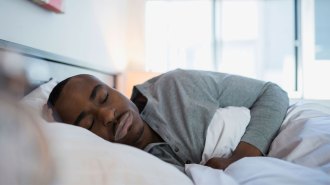 Health & Medicine
Health & MedicineMouth taping may be a trending sleep hack, but the science behind it is slim
Mouth taping is big on social media, but few studies have evaluated it. Some evidence suggests that sealing the lips shut may help people with sleep apnea.
By Meghan Rosen -
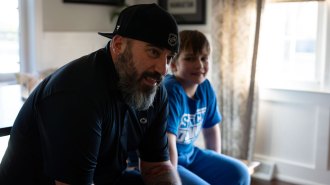 Health & Medicine
Health & MedicineHow brain implants are treating depression
This six-part series follows people whose lives have been changed by an experimental treatment called deep brain stimulation.
-
 Neuroscience
NeuroscienceToday’s depression treatments don’t help everyone
In the second story in the series, deep brain stimulation is a last resort for some people with depression.
-
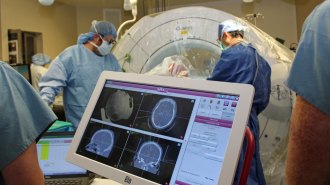 Health & Medicine
Health & MedicineThe science behind deep brain stimulation for depression
The third part of the series explores the promising brain areas to target for deep brain stimulation for depression.
-
 Neuroscience
NeuroscienceWhat’s it like to live with deep brain stimulation for depression?
The fourth article in the series explores the physical and emotional challenges of experimental brain implants for depression.
-
 Health & Medicine
Health & MedicineThere’s a stigma around brain implants and other depression treatments
The fifth article in the series asks why people are so uncomfortable with changing the brain.
-
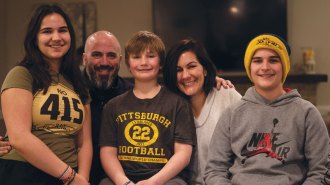 Neuroscience
NeuroscienceWhat’s the future of deep brain stimulation for depression?
The final story of the series describes efforts to simplify and improve brain implants for severe depression.